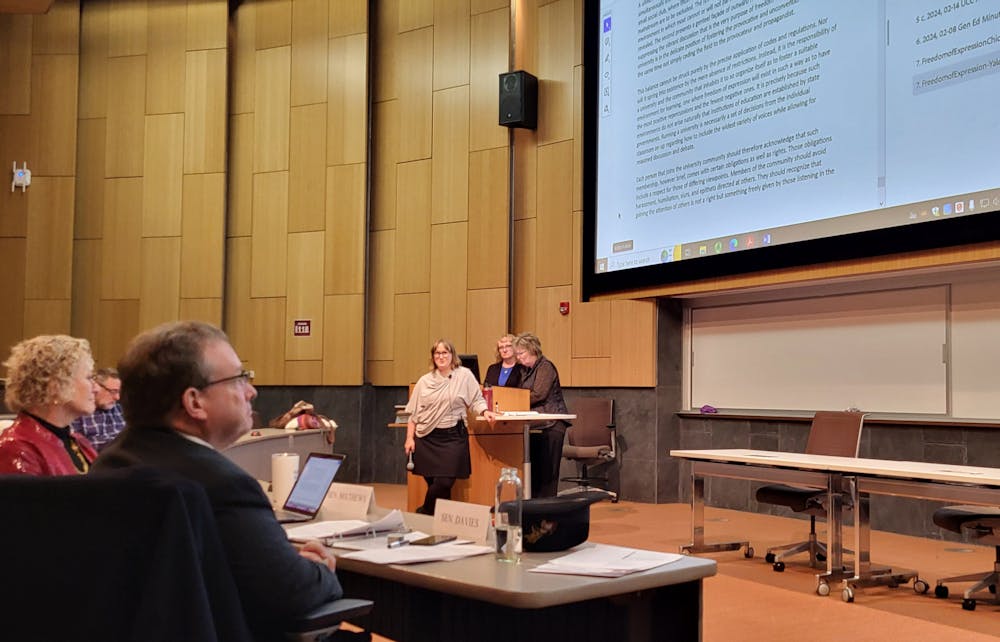'We Do'... jobs or social justice?
Academic Senate dives deeper into institutional values at Tuesday's meeting

The Academic Senate meeting on Tuesday, April 16, started with the lighthearted commendation of Tracy Davis for her time as Academic Senate chair from 2022-2024. But that energy didn't last past the report of the President and Provost, who addressed the racist words used on campus this week.
“We remain dedicated to making CMU a community where everyone feels welcome, supported and empowered to succeed,” President Bob Davies said at the meeting. “Please let me be clear: racism, bias and other acts of discrimination will not be tolerated on campus. There is no place for these words and actions at CMU.”
What started as an address of a looming issue became a discussion of the larger identity of the university, and the impacts of the face the institution presents to the rest of the world. Senator and faculty member Alan Rudy pointed out that in the six years of CMU’s “We Do” campaign, the university never pivoted from excluding social justice as part of its identity.
“In the very first ‘We Do’ document… we say nothing about social justice in this,” Rudy said. “We present ourselves as a jobs factory, not as a place awash in justice, not as a place awash in intellectual inquiry.
“As we move forward, we really need to think: What kind of culture are we producing?”
Provost Nancy Mathews responded by explaining a change in her attitude as a result of recent events. She said she started in her position seeing institutional progress through two lenses: equity and sustainability.
“I am now adding a third in there, which is health and well-being,” Mathews said.
Shawna Patterson-Stephens, vice president of inclusive excellence and belonging, addressed the demands for action from the student body.
“A lot of the things students are asking for are going to take time,” she said. “While we want to attend to things right now … if we’re looking for actual, sustainable, substantial change, it’s not going to occur this week.”
Davies said the Office of Civil Rights and Institutional Equity (OCRIE) is conducting an investigation, along with the Office of Student Conduct to determine how best to move forward.
“They are moving as fast as they possibly can,” he said.
Senator and faculty member Jeffrey Fisher brought up concern about this happening not only in an election year, but just after the Academic Senate opted to move forward with a freedom of expression statement.
“As this body endorsed and embraced the Yale Principles … there was discussion about the emphasis on community and the respectful nature of communities to discourage the use of slurs and things like it,” Davies said. “When these racial slurs are being thrown about, it stifles other individuals’ ability to have their own expression.”
In other events:
- The senate approved a new sports communication minor.
- After some significant discussion of a proposal to amend undergraduate major requirements to a minimum of 30 credit hours of 300-level classes instead of 40, the senate agreed to postpone a decision until the next meeting on April 30.
- Also upcoming at the April 30 meeting is a presentation from Mathews on the 20-year vision for the university.
The next meeting will be at 4 p.m. on April 30 in French Auditorium in the Education and Human Services Building. Livestreams of this meeting and all future meetings can be found on CMU’s website.






